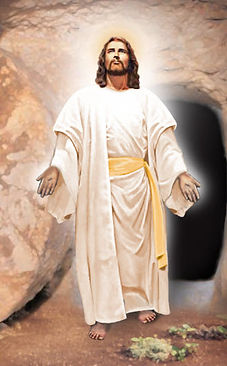CATHOLICISM 101
You Learn a Lot over 2,000+ Years
Living as a Catholic includes many wonderful beliefs, practices, and devotions - too many to catalog here. But we hope to provide you with a brief overview of what we believe and how we live those beliefs. We hope these resources will be valuable to interested non-Catholics as well as to Catholics who might be looking to deepen their knowledge and practice of the Faith.


The Catholic Church
Founder: The Church was founded by Jesus Christ, through the power of the Holy Spirit, and carried forward through the ages by Apostolic Tradition.
Size: The Catholic Church is the largest religion in the world with more than 1 billion members around the globe. At the end of 2019, the worldwide Catholic population exceeded 1.34 billion, which continued to be about 17.7% of the world’s population, said an article published March 26 in the Vatican newspaper, L’Osservatore Romano. It marked an increase of 16 million Catholics — a 1.12% increase compared to 2018 while the world’s population grew by 1.08%. According to a census that was issued by the Vatican, the number of Catholics throughout the world is growing in every region of the world except than Europe. As of the 31st of December in the year 2019, there were 1.34 billion Catholics in the globe out of a total population of 7.6 billion people.
Mission
-
To spread the gospel of Jesus Christ
-
To administer the sacraments
-
To reach out with charity and justice to people in need
Leadership: The Father, Son, and Holy Spirit. When Christ ascended into heaven, He left the apostles in charge of the Church, with Peter holding a special position. The successors of the apostles (the bishops) and Peter (the pope) continue the tradition of leading the Church through, with, and in Christ until he comes again.
Members
All of the baptized are part of the Body of Christ, the Church. God calls some of the members to be ordained so as to fulfill distinct roles and functions, but the majority of the Church is comprised of those who have not been ordained (outside of their baptism).

What Catholics Believe
-
We believe that God loves all people and desires to be in relationship with each person.
-
We believe that God’s reveals himself in numerous ways, but particularly through the revelation of his Word, which comes to us in two forms – Sacred Scripture (written) and Tradition (unwritten). The ultimate sign of God’s revelation is the Incarnation – God becoming human in Jesus Christ. The Incarnation is the ultimate sign of God’s love for God’s people.
-
We believe that human beings were created by God in love and that everything God creates is good and created out of love. While we have the capacity for sin, the Church believes in the dignity of the human person above all else.
-
We also believe that goodness infuses all of God’s wondrous creation. All creation, made by God, reflects that goodness. Catholics see the world and its beauty, renewed by the Incarnation, as sacramental – speaking of God’s goodness and love.
-
We believe in stewardship. Everything is given to us by God and our Catholic responsibility is to share our time, talent and treasure with those around us.
-
We believe in the Holy Trinity, that God has revealed himself to us as Father, Son and Holy Spirit – a communion of knowledge and love – and has created us to share in that life.
-
We believe in community and a living Church – believers are a part of the living Body of Christ and, as such, we are a reflection of the communal nature of the Trinity.
-
We believe in the communion of the Saints – models of faith who help and guide us in our efforts to - like them - give ourselves fully to Christ.
-
We believe in Jesus’ crucifixion, death and resurrection, and we hope that one day we will rise to new life with him.
The beliefs of the Catholic Church and her beautiful teachings are consistent through the ages.
If you hear of the Church changing something (like the language of the Mass) . . .
That's because a "discipline" or "practice" can change with times and cultures. But the truth of Christ's teaching (dogma/doctrine/principles) is not within the realm of being changed or updated because Christ is Truth itself.
If you hear of the Church "coming up with a new idea". . .
It's never really a new idea. There cannot be a Church teaching that's pulled out of nowhere. There cannot be a Church teaching that contradicts Scripture. There cannot be a Church teaching that is based on personal opinion. If anything, the Church might have come to a better understanding or expression of the faith.
Consider the concept of the "Trinity": although the concept had been there since Genesis, that word is not in Scripture. It took more than a little while for the Church to piece together the idea and its implications; when it became a matter of doctrine, it was not "new", just "clearer".
Do Catholics Worship Mary?
Direct answer . . . No Click HERE for more information
Worship through the Seven Sacraments
Click HERE to view detailed information



